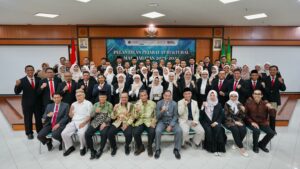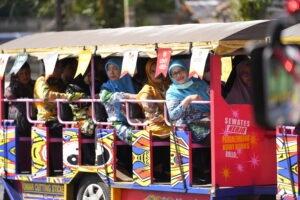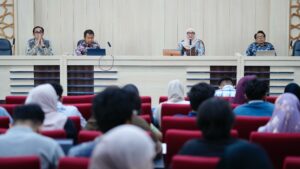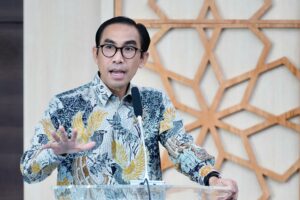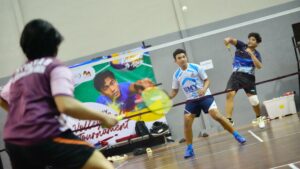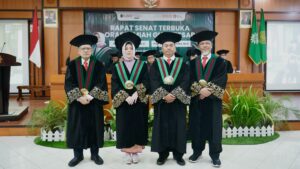Abrasion is a process of coastal erosion by destructive ocean waves which commonly becomes an issues of a country adjacent to oceans. Indonesia is a country possessing the longest coastline and facing abrasion threats. Indeed, logging of mangroves triggers the abrasion. According to Ministry of Marine Affairs of the Republic of Indonesia, in 2017 Indonesia lost 30,000 hectares of land due to sea level rises and abrasion.
Creating a mangrove ecosystem is a mean of coping with the abrasion so that strong mangrove seeds are needed. “The ecosystem has a lot of functions such as withstanding high waves, storms, and tides. Mangroves ecologically have germ cells because they are a place to lay eggs and nest marine biota,” told Eka Fitriastuti, a student of Agrotechnology of Universitas Muhammadiyah Yogyakarta (UMY) associated in Program Kreativitas Mahasiswa-Penelitian (PKM-P) about Pedada Mangrove seeds.
Eka stated that a mangrove ecosystem needs an outer layer which can adapt to the outermost environment. “A type of the adaptive mangroves is Pedada mangrove (Sonneratia caseolaris). The Pedada is a mangrove growing in coastal areas with high adaptation to salinity in soil and sea water,” she explained.
The PKM-K team conducted research on augmentation of mangrove seeds using an in vitro technique. “The in vitro is a method to augment plants through isolating a part of the plant and growing it on a medium containing nutrient and a growth regulator. The technique is carried out in a sterile condition so that it can produce more seeds faster and free from plant diseases as well as identical to the parent without influenced by seasons,” told Eka.
She also expected that the research can be an innovation to confront abrasion issues in Indonesia.

